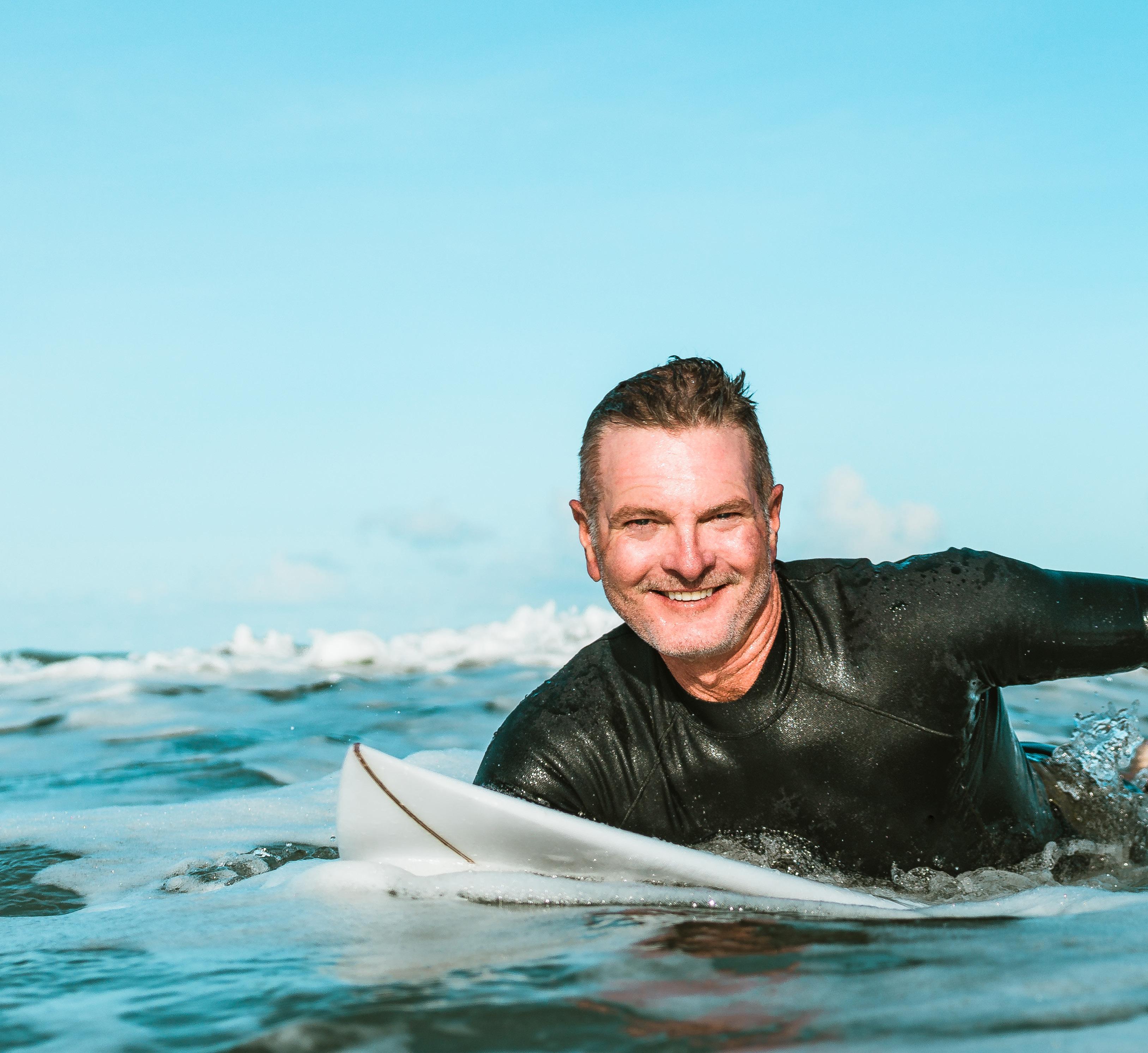
4 minute read
CATCHING WAVES
Catching waves, feeling the stoke, building relationships
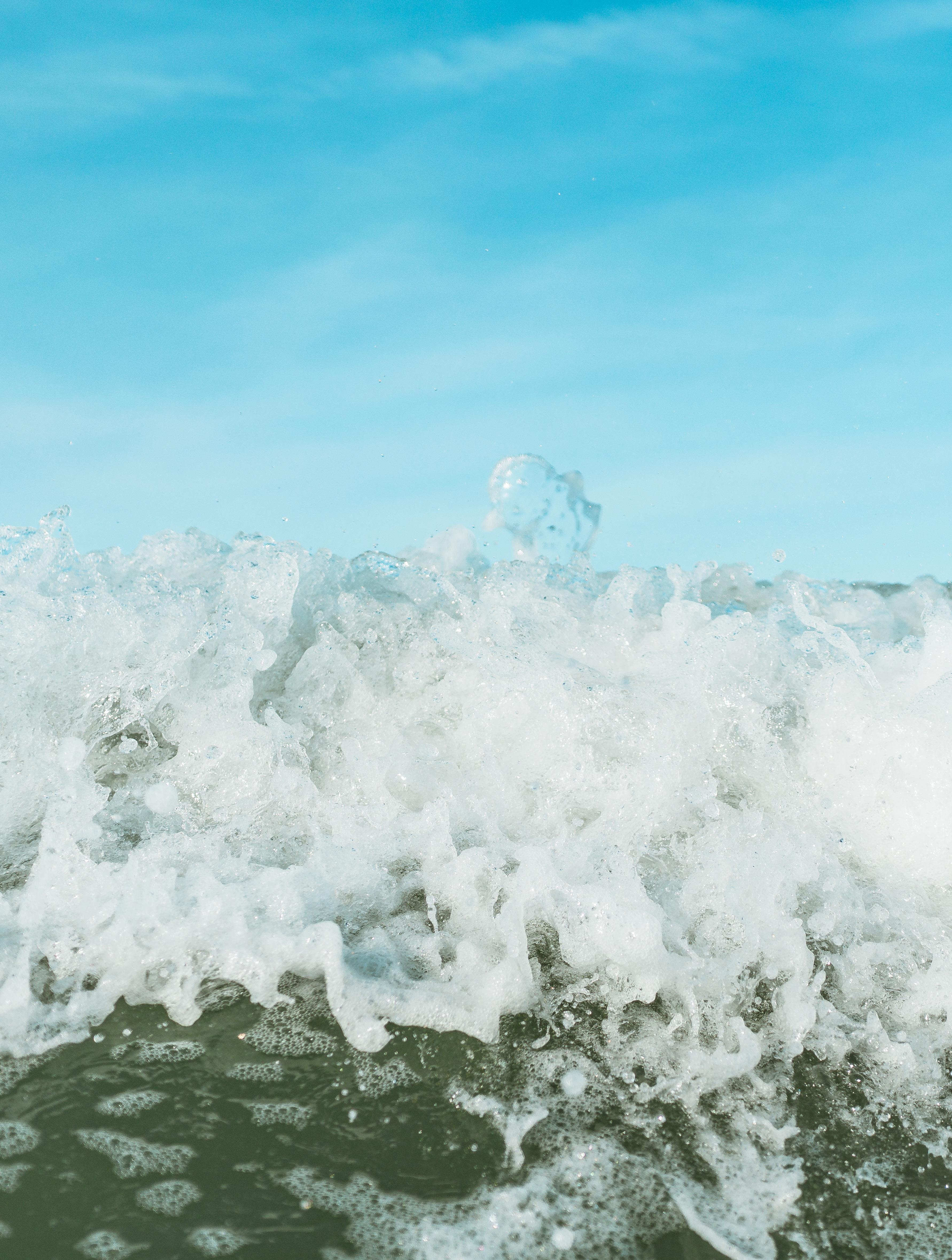
Advertisement
Story by Amy Sweezey | Photography by Mike Dunn
Surf instructor Chris Ross believes surfing is more than just catching waves.
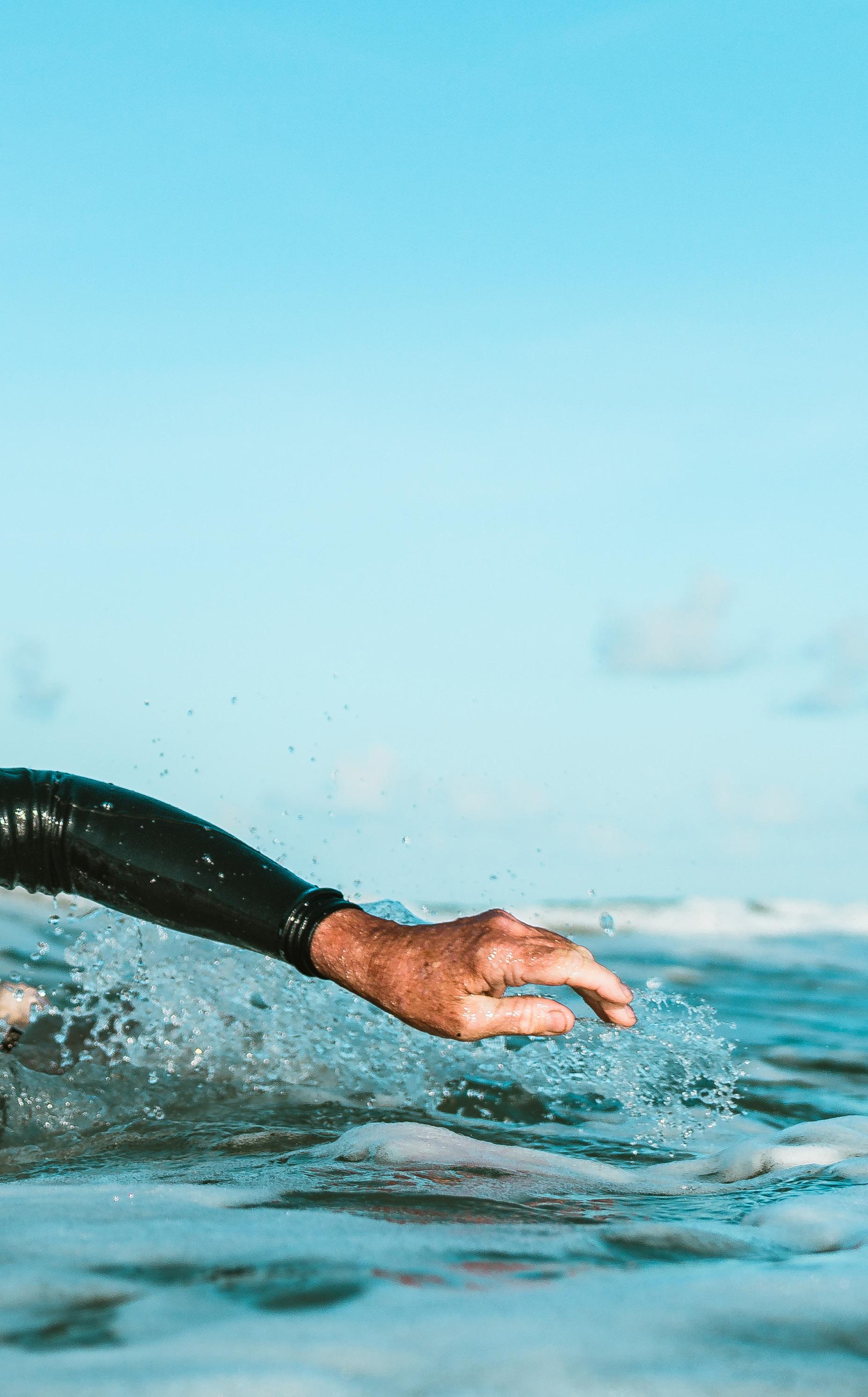
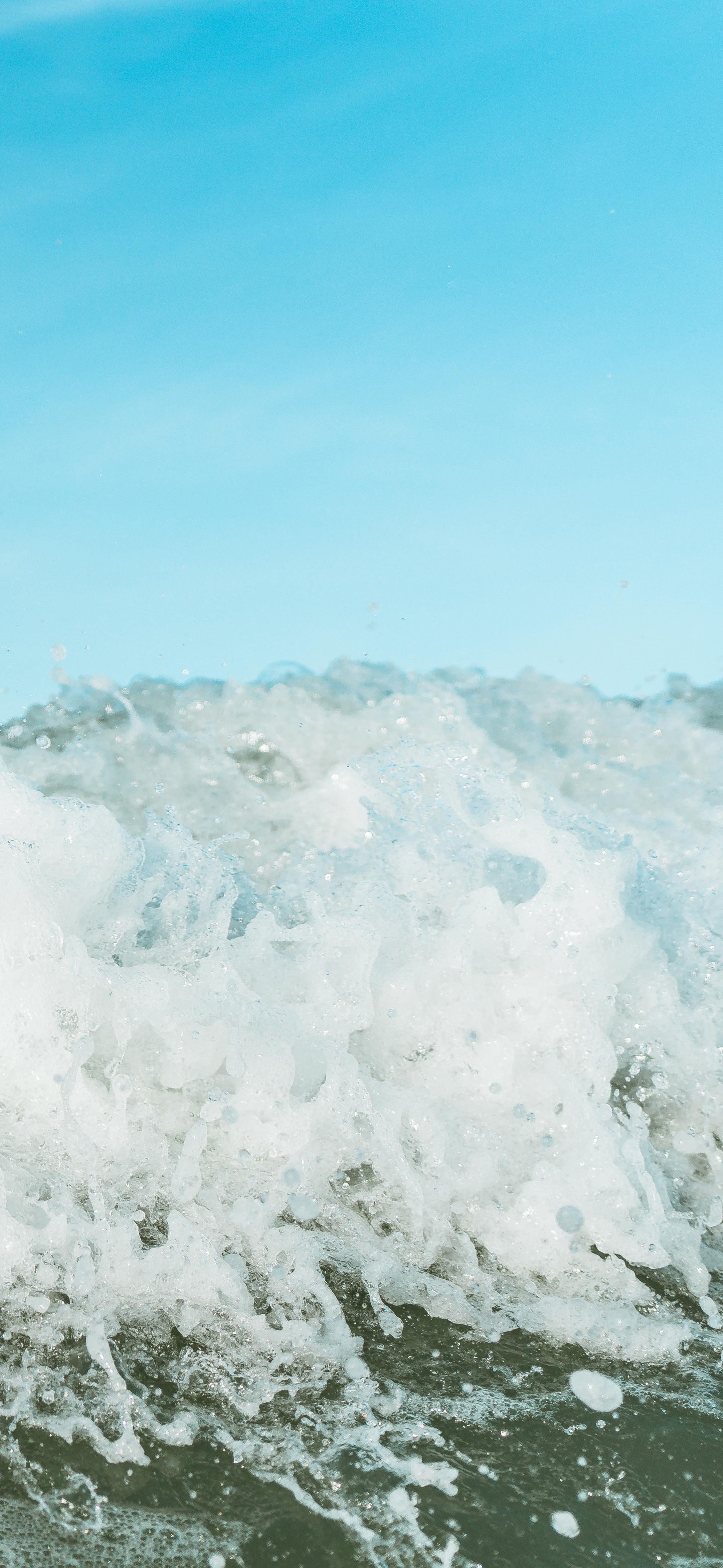
It’s about relationships—a relationship with the surfboard, the ocean, and with other surfers.
When he started surfing on the East Coast of Florida as a teenager, Ross laid his board on his living room floor and stared at it. He knew the importance of building a relationship with his board right from the start.
“I wanted to learn the mechanics of it,” he said. “I looked at the fins and checked it all out.”
Ross continued, “If you aren’t comfortable with the board and on the board, you’re going to trip and fall. If a child who is a first-time surfer feels nervous, I tell them to build a sandcastle on the surfboard. As long as they are spending time on that board, they’re building their confidence whether anybody knows it or not.”
After a surfer builds a relationship with the board, the next step is getting in the water.
“You have to be comfortable going in the ocean and confident that everything will be OK,” Ross said. “I’ve almost drowned several times, but I still go out.”
Ross emphasized the importance of a healthy fear of the ocean rather than an unhealthy fear.
“To be in fear of the ocean is healthy when you recognize its power and are aware of sharks and wildlife and other real dangers,” he said. “But when you refuse to even go in the ocean because of those things, that’s an unhealthy fear.”
Ross spent much of his time teaching confidence-building techniques during his surf camps for kids. He understood that inserting healthy fear took away their unhealthy fears.
“Kids are actually a lot more teachable than adults,” Ross said. “Kids have no idea what to expect, but adults already have an idea in their mind of what surfing will be like. It’s harder to take an adult’s fear away when they have it embedded in their brain.”
Ross caught his first wave when he was 16 in New Smyrna Beach, just south of Daytona Beach.
“I paddled into a wave, and stood up, and rode it all the way to the beach,” he said, beaming. “I was hooked from there on.”
That was the first time Ross felt the “stoke,” which in surfer terms means “the highest level of excitement.”
“A surfer knows that feeling after you catch a wave and get that stoke,” he said. “You can be stoked at any time, whether you’re surfing or not; but a surfer understands that high level of excitement and remembers it later.”
Building a relationship with the surfboard and the ocean were the first two keys in Ross’ surf instruction, but it was building relationships with other people that he emphasized the most.
It was his relationship with his son that first attracted Ross to teaching surfing. He started with his son, Corey, in 2008, when Corey was just 9 years old. When Corey’s friends showed up for lessons, too, Ross had an unplanned, captive audience. After several years of teaching for fun, to whoever asked, in 2014, Ross turned his surf instruction into a side gig.
“I really enjoyed teaching,” he said. “I got a thrill out of sharing the stoke I had and seeing other people have that stoke.”
“I didn’t do it for the money,” Ross said. “I have done landscaping my whole life and surfing was just a side thing. But once it started growing, I decided to transition from my full-time landscaping business to the one that takes my heart the most—and that is surfing.”
Tragically in 2018, Ross’ son, Corey, was killed in a motorcycle accident at the age of 19. He had surfed earlier in the day and told his sister it was the “best day he’d ever had.” Ross got a call later that night saying Corey was just 2 miles from home when he died at the scene of the accident.
“He was a really good kid,” Ross said. “Everywhere he went, he made an impact and people loved him.”
Ross reminisced, “Corey was the one who got me started teaching. He was an avid surfer and helped me launch out to other youth. It’s crazy how my son could pass away, and yet I can still celebrate and smile because of all the good times.”
Ross believed his relationship with Corey was stronger because they connected through surfing.
“Every time I give a lesson or teach a camp, I always, always tell my students that surfing is more than just catching waves,” Ross said. “They must feel confident and comfortable with their surfboard. They have to have a healthy – not unhealthy – fear of the ocean. And they should use their love of surfing and feeling the stoke to build relationships with other people.”
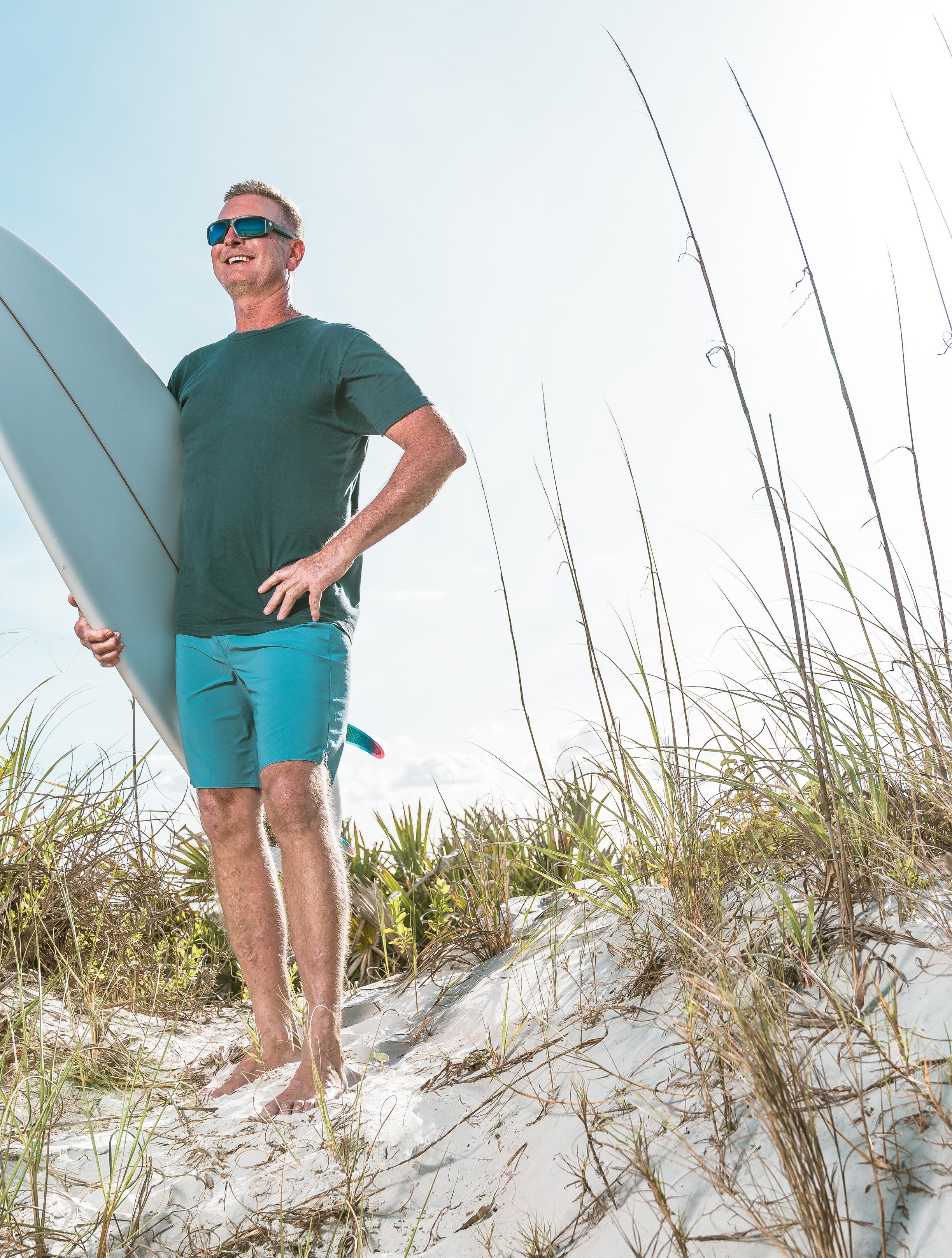
CHRIS ROSS









